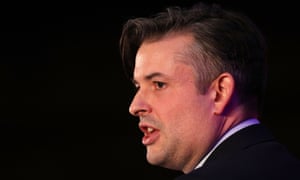por sus injurias a la esposa de Franco. Carta a Paul Preston, un muerto de hambre inglés con visos de pseudo historiador al que jalean todos los palmeros del Sionismo visceral
2 de octubre de 2001
CARTA A PAUL PRESTON.
Por Antonio Parra
Amigo Paúl, te escribo a cuenta de tu libro sobre las mujeres españolas que participaron en nuestra guerra civil: la mujer de Onésimo Redondo, la Pasionaria y otras cuantas más. Todo está muy en totum revolutum, las churras con las merinas, halcones y palomas, y aprovechando que el Pisuerga pasa por Valladolid, donde a ti te mandaron de becario de intercambio por el gobierno al colegio de irlandeses, ciudad de las que volviste diciendo pestes y metiendote con los cazurros de Delibes, pues entras a sangre y fuego contra Carmen Polo de Franco, una ovetense de pro, que tendría sus defectos como todo mortal, porque ya sabes aquello de “quien no perdona sus defectos no ama a los humanos” o “ni yantar sin desperdicio ni hombre sin vicio”, pero que fue mujer de gran corazón, afable y sencilla, esposa de un militar. Una verdadera señora de Oviedo. Como doña Jimena, doña Urraca la Asturiana o doña Gonterodo. Como mi mujer, como alguna de mis novias.
Incurres en un defecto imperdonable a un historiador objetivo la saña, la vesania, el empecinado rememorar desde el desmelenamiento del vencido.
Merezcante, hombre, respeto los muertos. Además te metes con las mujeres por lo que incurrirías en algo muy corriente a la sazón en el acoso. Un acosador te llamarían aunque claro está en tu caso no tendría el sentido que se le suele dar, pero te expones en este país, donde no se permite a maltratar verbal o físicamente a las mujeres, a que algún hidalgo te rompa la cara. Por atentar contra el honor de alguien que no se encuentra entre los vivos y no se puede defender de tus especiosos y contumeliosos veredictos que descubren tu violencia y tu impotencia contra España. Una y otra vez insistes machaconamente desde tus delirantes entregas, pues no se podrá calificar de libros a tanta carnaza con refritos de medias verdades, morcillas que no vienen a cuento y otras butifarras, en el mono tema. Más de lo mismo. Parece que sangras por la herida. Joder ¿qué te pasa?
Me acuerdo de un Paul Preston al que yo di clases de pronunciación y conversación castellana en el Marist College de Hull curso 1966 con un acento cerrado de Liverpool que pugnaba por ganar una plaza en Oxford. Era un pelitaheño de cabellos rizosos en melena leonina, muchas pecas, la pupila verde y algo de ectropión que se movía con andares de teddy boy, menos partidario de los Beatles que de los Rolling Stones y que en español, a pesar de que el director del centro me había encomiado su alto nivel, estaba pez. Si eres tú el Paul Preston de Liverpool al que yo traté de entusiasmar con la lengua y la cultura de Cervantes, tengo que decir que como estudiante pertenecías sino al pelotón de los torpes, al menos a los del montón. Para más inri, eras gamberro a morir con alevosía y provocación. Hasta en una lección me soltaste sin venir a cuento de que Valladolid era un burdel, un inmenso cuartel y un enorme convento. Que todos los españoles eramos maricas, las chicas todas putas y que los únicos machos los había metido Franco en un campo de concentración. Traté de aparejarte a razones pero no hubo manera. La cabra tiraba al monte, fui incapaz de hacer gavilla de ti. No así de otro que se llamaba Sean, un irlandés, que consiguió el A level con proficiency lo que equivale a matricula de honor “In Spanish”.
No te me despintas. Tú no puedes ser otro que aquel Paul Preston que hablaba con aquella voz cavernosa de los barrios del puerto de Liverpool. Era la misma dicción que la de Paul Mac Cartney, Ringo Star y John Lennon. Al igual que ellos tú tuviste que pulirte en la universidad aquel pelo de la dehesa y conseguir el inglés melifluo de la Bibisi. El mismo que viste y calza.
Tengo que decir que este sí que es mi Paúl. No me lo cambiaron. Vuelves por donde solías. Haciendo el burro. Diciendo paridas contumaz y procaz hasta que te cansas pero sin pensamiento original pues eres uno de esos escritores que hablan por cartapacio. Piquitos de piñón y boca de ganso repitiendo aquello que oyen o recogen sus antenas. Volviendo a los lugares comunes y los manidos tópicos de la “Collares”, la “Franca”, la “cabeza de chorlito con menos inteligencia que un ratón” etc.
Sin demostrar que ni una sola vez echase la mano al cajón como hace ahora tanta gente ni incurriendo en los cohechos y peculados ahora tan habituales. Ni a ella ni a su marido les habéis podido coger en un solo renuncio de un afer secreto o un hijo entenado o extramatrimonial los porno cronistas que no historiadores, los jornal/listos, retrateros mirones, la tribu cursi de la prensa sural, cotillas del con quién se acuesta ésa y con quién se levanta la otra, que no periodistas oportunistas de la revancha. A moro muerto gran lanzada. Desde luego, pero eso no tiene poco mérito. Os han dado una chifla, y todos capadores. Lo fácil es aullar con el lobo, lo difícil es enfrentarse a la muta. Y vosotros más que muta sois jauría que arrasa con más ahínco que las manadas de gochus que bajan a estos valles desde la Cerceda y la Rondiella o el Picu la Puerca con los recios plenilunio de enero hozando como rayones detrás del morueco. No quedará títere con cabeza ni quintana ni corral que no se abrasen acusando los destrozos de vuestros colmillos envenenados.
“Yo siempre estuve reservada para Paco”, afirmaba en una de las escasas entrevistas que concedió por su cuenta ya fallecido el Caudillo. No le gustaban los protagonismos y fue la mujer de un soldado, su sombra fiel, desde que se conocieron en un baile por San Mateo del año 17 recién incorporado Francisco Franco al Regimiento del Príncipe - venía convaleciente de una bala que casi le perfora el hígado en Tiduf- hasta el 20 de noviembre de 1975.
Sin ningún altibajo. Juntos del principio al fin.
A doña Carmen Polo Martínez Valdés, digan lo que quieran las lenguas viperinas, tanto en el Pardo como la Calle Uría siempre se la conoció por el cognomen de la “señora”. Con esto está dicho todo: la elegancia, la casta, el linaje de una asturianía apacible y bondosa sin otras pretensiones que las del concepto del deber y la vocación de servicio a España. Era aquella eterna sonrisa con que aparece retratada el día de su boda saliendo de la iglesia de San Juan en 1923 y con la que acompaña a su marido a los actos oficiales nunca en primer plano.
La ceremonia tuvo que ser aplazada en dos ocasiones (“Carmencita bien puede esperar; España no”) la primera cuando tuvo que salir zumbando para ayudar a Millán Astray a organizar los cuadros de la Legión con mehalas marroquíes y voluntarios internacionales y la segunda cuando lo de Annual en 1921. Ya se sabe lo que decía Mola “la bala que te ha de matar no la sentirás venir, pero todas ellas, como las cartas tienen un matasellos, una fecha y un destinatario, hay que abrir el correo”.
Con el laconismo que le caracterizaba aquel discreto oficial gallego, pequeño y de infantería, cuando recibe el telegrama ordenando rápida incorporación al Ejército de Tareas del Rif bajo las ordenes de Sanjurjo, que le saca de su “Oviedín”, no disimula su sorna “Otra vez a torear”.
Y parte raudo a presentar batalla contra Abdel Krim.
Las personas que se quieren llegan a parecerse físicamente. El roce hace el cariño y Franco y su mujer, si no enamorados y acaramelados a la tontuna, debieron de sentir un amor profundo el uno por el otro. Se parecían en la sonrisa. Nunca lo dejó solo. Incluso durante las operaciones bélicas lo acompañaba de un frente a otro. Hicieron la guerra en una rulot.
Creo haber oído decir a un periodista, José María Zugazaga, que perteneció a la Casa de Su Excelencia, que Franco el humor que le gustaba no era tanto el gallego como el de la calle Uría. Llevaba a Asturias en el corazón. Quería profundamente a esta región donde fue feliz donde estudió a conciencia. Por eso venía a pescar aguas arriba del Narcea todos los años.
En una ocasión le preguntaron cuáles habían sido los mejores soldados de su escuadra y dio la siguiente réplica: “La guerra me la ganaron los gallegos y los moros; los navarros echaron el resto, ninguna tropa más segura que la de los castellanos, pero los más valientes no te quepa la menor duda, José Mari, los asturianos. Los de Simancas y los del Cerco de Oviedo”.
Cerca de Oviedo se sentía radiante y hasta recuperaba la buena forma física. Allí nació su única hija Mari Carmen a la que llamaba “mi nenuca” y la “morucha” por ser muy morena. Hay una entrevista que concede a Life en abril de 1937 en la finca de los Polo en San Cucufate de Llanera.
Allí se muestra al matrimonio Franco como un paradigma de armonía conyugal. Carmen y Paco sonríen sin parar y por allí anda la “Morucha” que aparece escalando un manzano de la frondosa pumarada. Y este artículo ganó la guerra para la causa nacional. El general se metió a los americanos en un puño - he ahí la fuerza de los medios de la imagen - sacando a relucir sus encantos de seductor en los primeros años. Oviedo era el sitio donde regresaba al cabo de las campañas africanas a lamerse sus heridas, el descanso del guerrero. La ciudad lo transformaba.
Parece ser que se impregnó de esa bonhomía del asturiano de buen carácter a veces irónico y teñido de orbayus y borrinas, exponente de civilidad. Ni muy pobre ni muy rico. Sólo quería una vida decente, un buen pasar. Aura mediócritas bajo las torres caladas de la catedral de Vetusta. Al tiempo que una espiritualidad profunda. Los golpes que más le dolieron fueron los que le dio la Iglesia de los obispos trabucaires como Mr. Añoveros que quiso excomulgarlo y en 1948 cuando ONU decreta la expulsión de España de la comunidad internacional merced al veto de Israel. Precisamente, a él que tanto había hecho por Israel y que tantos judíos salvara, a él que dio instrucciones al embajador Sanz Briz para que concediera pasaporte español a todos los sefardíes de Salónica. El propio Ben Gurión cruzó los Pirineos en valija diplomática dentro del portamaletas de un coche.
Esos son zonas oscuras de la biografía de Franco poco esclarecidas o silenciadas a propio intento. Como por ejemplo sus relaciones con Inglaterra que visita sólo una vez con motivo de las exequias en Londres del rey Jorge V pero al cual admiraba por su pragmatismo y buenos modales, justo lo que a ti te falta, Paul Preston.
Era un anglófilo dentro de un orden. No tanto como Julián Marías. Pero le gustaba tomar el te de las cinco con su señora y rodeado de sus hijos y de sus nietos. No le gustaba demasiado la política y leía a autores ingleses Woodhouse, Agatha Christie, Chesterton y al plomo de Azorín. Siempre dentro de unos niveles discretos de modestia confortable.
Nunca consiguió aprender inglés aunque hizo lo que pudo por reanudar aquella clase particular interrumpida en Tenerife el 14 de julio de 1936 por causa mayor. Sin embargo la figura de Franco hay que analizarla bajo la influencia británica. El movimiento se fraguó en Londres mediante los dineros del banquero Juan March y al socaire de otras trastiendas internacionales. No era él el general designado en principio sino Emilio Mola Vidal. Luego se alzó “Franquito” con el mando único. ¿Por qué? Nadie supo explicarlo.
Quedan por aclarar y por patentar los correos De Philby el gran maestro del espionaje del Circus londinense, las mañas del embajador Lord Templewood o Sir Samuel O´Hara en Madrid y las del Marques de Santa Cruz en Londres.
Los británicos sois algo anecdóticos y periféricos al abordar un hecho tan complejo como es el de aquel estallido que fue un ensayo general para algo más gordo. A chip on your shoulder como soléis decir.
Con semejante petulancia que nos mira por encima del hombre y que bajo cuerda revela una carencia y uno de vuestros muchos complejos de inferioridad nos habéis estado vendiendo “guerra civil” contadas por vosotros y nos despachasteis libros como roscas alcanzando tiradas millonarias que os han situado en el poder y la gloria. A ti me consta que el “Spain bashing” labróte todo un capital a ti, tío.
Cito a Hugh Thomas, Brian Crozier, Elliot, Ian Gibson y a ti mismo, habéis encontrado una mina mientras que aquí muchos andamos lampando. Esto tiene que ver con el papanatismo de nuestras clases pudientes con su flexibilidad de vertebras ante todo lo inglés.
Nos habéis colocado la burra y, soberbios traficantes, nos la habéis vendido bien. El “English teaching” es una industria y una picaresca en la Piel de Toro que mueve cifras de diez dígitos. Para colmo, ostentáis la exclusiva de nuestra historia reciente.
A pesar de todo algunos no podéis esconder al hooligan que lleváis dentro. Al “teddy boy” de aquellos años saltados a la fama desde sitios como Hull o Liverpool que son el culo del mundo.
Vuestra interpretación de la historia es freudiana. Todo un gran problema de bragueta. En los libros hay que echarle más testosterona que en la guerra y algunas novelas hay que escribirlas con el clítoris como hacen no pocas novelistas inglesas que remedan algunas de las pánfilas nacionales que montean por nuestros periódicos y que de una navaja en la liga han pasado a ser rosas insatisfechas.
“Please no sex. We are British” era el titulo de una comedia de los setenta. Sin embargo aquí como se ha perdido el pudor el mundo gira en torno a los tamaños, las pesas y las medidas. Tengo entendido que la honra no la llevan los hombres y mujeres en las partes menos nobles de su fisiología sino en la mente y en la corazón. Y Carmen Polo de Franco Martínez Valdés era una asturiana de pro mujer de honor como lo era su esposo, el de Dar Akoba y Acila, el del Gurugú. No se explica cómo sobrevivió a aquel tiro mortal de necesidad que le perforó el vientre. Tampoco sé si tal percance influyó en su capacidad reproductora aunque dudo que afectase para nada a su higiene sexual.
De lo que sí estoy seguro es que los cojones, como piensas tú o la Fallaci, y nada se diga de doña Magdalena Albright, la que bombardeó Belgrado la noche de Pascua y que no sabía decir otra cosa en español, a question of balls, no los llevemos los hombres donde los animales. Cuelgan de otra parte. Tanta obsesión fálica es subliminal síntoma de vuestra impotencia. Sois flojos. Y Franco tuvo un par de pelotas. Eso decían los moros de la cabilas mirandolo como a un dios que tenía lo que hay que tener y “baraka”. Muchos le adoraban como si fuera un profeta. Y también los tuvo en abundancia para hacer feliz a aquella mujer, a la asturiana. ¡Ya quisieran muchos!
2 de octubre de 2001
ANTONIO PARRA, periodista y escritor.




